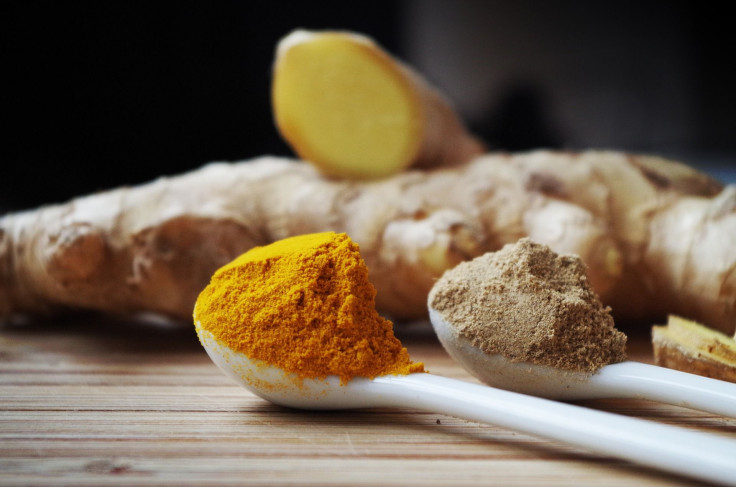Health Benefits Of Curry Powder: Curcumin May Defeat Drug-Resistant Tuberculosis

The chemical in turmeric that gives the root its distinctive yellow color and spicy, bitter flavor may also help treat drug-resistant tuberculosis, according to a new study published in Respirology.
Tuberculosis (TB) that’s resistant to most antibiotics can be dangerous and difficult to treat. The disease is caused by an airborne bacteria, Mycobacterium tuberculosis (MTB), that typically attacks the lungs, but can also harm the brain, kidneys, and spine. For most of recent history, TB was successfully treated with antibiotics; but as antibiotic resistance spreads, some strains of TB bacteria may also develop resistance to drugs.
Finding new pathways of treatment for drug-resistant TB (as well as any other antibiotic-resistant bacteria), then, is quite critical. “With the worldwide emergence of highly drug-resistant tuberculosis (TB), novel agents that have direct antimycobacterial effects or that enhance host immunity are urgently needed,” the authors write in the paper. They note that their results showed that curcumin stimulates the immune system as “a potent inducer of apoptosis — an effector mechanism used by macrophages to kill intracellular Mycobacterium tuberculosis .”
In the study, the researchers used an in vitro (outside the body) model for cells infected with TB. They focused on curcumin’s effect on human macrophages, which are a type of white blood cell that clears out any foreign substances, microbes, cancer cells, or cellular waste from the body as part of the immune system. The use of curcumin in the model boosted the macrophages’ ability to clear out and kill the tuberculosis bacteria.
Curcumin is a substance found in turmeric, a root that’s in the ginger family and originally found in India. Curcumin is turmeric’s most active ingredient and offers anti-inflammatory and antioxidant properties. For centuries, turmeric has been used in both food and traditional medicine; it’s typically boiled down, baked, and ground into a yellow powder. Curcumin gives turmeric its yellow coloring, and as a separate entity from turmeric is often used as an herbal supplement, or added to cosmetics, spices, or food coloring.
For thousands of years, turmeric has been used to treat arthritis, stomach problems, and other health issues in traditional medicine and spiritual rituals — more as an herbal supplement than anything else, of course. In 2014, curcumin was shown to reduce post-traumatic stress disorder (PTSD) symptoms, and another study found that curcumin also held potential to shrink cancer tumors or slow their growth. All in all, curcumin has been studied robustly over the years, but most of its health benefits have been played out in laboratory dishes and have yet to be transferred to animal or human trials.
In order to move their latest study forward and provide more conclusive evidence, the researchers hope to experiment in an animal model next. “Our study has provided basic evidence that curcumin protects against Mycobacterium tuberculosis infection in human cells,” Dr. Xiyuan Bai, lead author of the study, said in the statement. “The protective role of curcumin to fight drug-resistant tuberculosis still needs confirmation, but if validated, curcumin may become a novel treatment to modulate the host immune response to overcome drug-resistant tuberculosis.”
Source: Bai X, Oberley-Deegan R, Bai A, Ovrutsky A, Kinney W, Weaver M. Curcumin enhances human macrophage control of Mycobacterium tuberculosis infection. Respirology , 2016.
Published by Medicaldaily.com



























